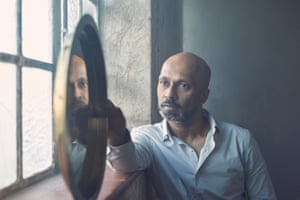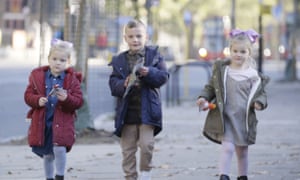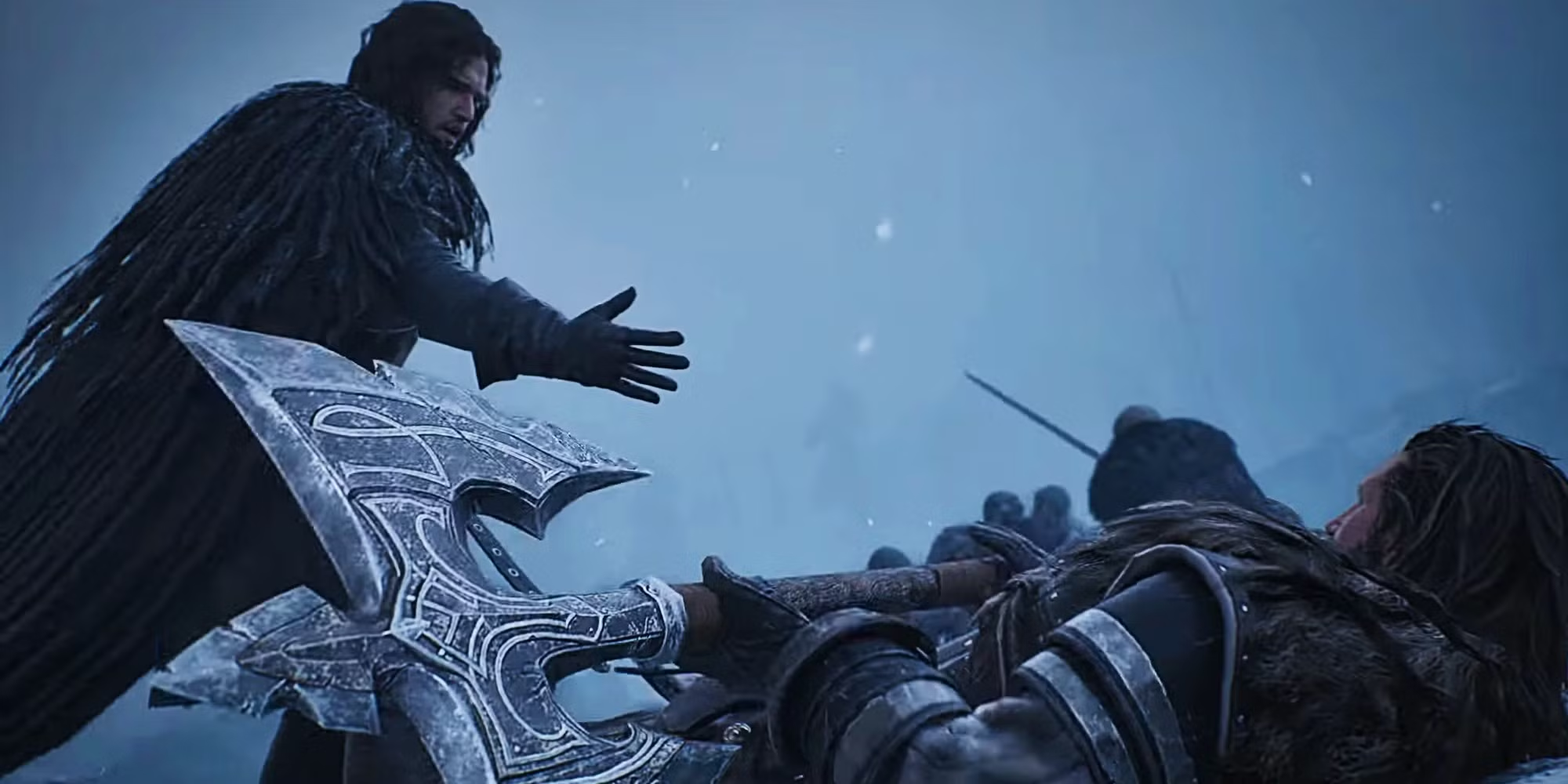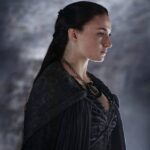Game of Thrones (Sky Atlantic) | sky.com
The Curry House Kid (Channel 4) | channel4.com
Great Art: Young Picasso (ITV) | itv.com
Forensics: The Real CSI (BBC Two) | iPlayer
Planet Child (ITV) | itv.com
The Widow (ITV) | itv.com
Some people are never happy, never will be, and it’s probably up to those of us who, in the main, are to just let them skulk and glower, although it might be becoming harder in the age of antisocial media when those skulks and glowers are just so loud. True, the 82 minutes of the battle of Winterfell were dark, in every sense, and you had to squint at the screen for at least 40 of those minutes: but we were also being vouchsafed an incredible, wonderfully wrought hour’s banquet of television, more truthfully depicted than any battle scene that (after all) involves giants, dragons and the undead has any right to be.
OK, moaners, I too had to squint at Game of Thrones. And draw the drapes, and wipe some of the cumulative scurf off my corner screen, and become acquaintanced with the finer settings of the other, lost-behind-sofa, remote, which I’ll count as 2019’s spring clean. But, as the producers have said, in fact warned beforehand, the lighting – absence of, rather – was there for a reason: to emphasise the confusion of war, where you’re just never quite sure whose head you’re chopping off or whose axe you might happen to be parrying or fleeing, depending on whether you’re having a good hero day or being the quivering Samwell; and I thought this episode managed, with magnificence, to convey just that. Those stuttering start-stops between reeking flurries of panicked bloodlust and sudden fraught calm. Those silences, hot with heartbeat, straining one’s ears for a scrape of metal on stone; and the eyes, reflecting flamelight on the walls, pregnant with terror.
The pacing cleverly allowed for a few glorious set pieces, such as (obviously, but still – wowza) Melisandre’s lighting of the Dothraki swords, to be intercut with highly individual tales: Arya’s scuttlings in the candled labyrinths of Winterfell, Theon’s empty-handed scrabbling for the last arrow. Quite a diary day too for little Arya Stark, all growed up now.
All in all, this was a high-water mark in naturalistic, cinematic television: and perhaps the first international water-cooler moment. And enough are still standing to ensure the last three episodes will, rather than any kind of anti-climax, be an enthrallingly personal battle for the throne: the second episode, rich with compromise and reconciliation, has perhaps given us a signposting that all surprises need not be power-crazed or violent. Though there’s still Cersei. My one disappointment last week was the dragons. All that budget! Spent on things… flapping, in the dark. You had one job, dragon! Breathe fire. Light up my life.
Absurdly far away from all this were two pieces of grand TV which, though far from fantasy, involved dance, and involved art, which is as close as most mortals are likely to get. The Curry House Kid, Akram Khan’s tale of a delightful second-gen London Bangladeshi who escaped the reek of cumin and weep of onions, the 1980s bullying of drunken white late-night geezerdom, to forge a brilliant career was rich in honesty and in pathos. Khan crammed much into this small piece: his remembered resentments, fears, shames, and how those were conquered through dance. How the local whites have mellowed, turned indeed into annoying hipsters: and how patriarchy and tradition are risking the very things, such as family, the first-generation immigrants fought so hard for. With all this going on it was a great shame so little time could be spared for the resultant, enthralling, cathartic dance creation: I could easily have watched two full hours.

There was, I’d thought, little new to say about Picasso, but Great Art said it in clever ways, chiefly by focusing on the very early years, in and around Paris and Barcelona circa 1900, and by allowing in the voices of Málaga and Catalonia, undubbed. The chief lesson, obvious in many ways yet so seldom remembered, was that it was the very strictures and disciplines of art imposed early on young Pablo, to wriggling resentment, that allowed him to break so fully from them and, in the end, essentially reinvent art. Les Demoiselles d’Avignon, on which this rightly ended, still has the power to shock, 112 years later.
There’s a sad irony in that forensic pathology, as made intriguing by shows such as CSI and the sterling work of the likes of Professor Sue Black (an inspiration for the books of Val McDermid) is becoming popularised just when, in England, government rushes to privatise the services ever more stupidly. It might be hoped that Forensics: The Real CSI goes some way towards encouraging more youngsters to train in this dark scientific art.
Be warned, though: it’s a trog. It’s not all spritzy Nicky in Silent Witness, skipping on and off planes. You don’t even get her whizzy cameras: the Northumberland teams, 26 scenes-of-crime officers for 9,000 incidents a year, don’t appear to possess ring-flashes. Instead, they’re dusting shotgun cartridges. Doing mundane things with ground glass. Tilting heads, and squinting, and being ginormously frustrated. Yet this new series is still absurdly fascinating (or maybe it’s just me?), and all the wildly better for being demonstrably real and true, right down to the boredom.
A third of British under-fives “own” their own tablet, yet 99% of British parents would not put a child under seven on public transport unsupervised. These and other flurries of loopy-but-true statistics came courtesy of the ritzy doctor twins, Chris and Xand Von Tulleken, as the first part (of three) of Planet Child, which looks set to become an enjoyably intriguing exploration of the fact that 90% of our brains are fully developed by the age of seven.

The children in the first experiment – to walk through a London park, get on a bus to the Eye, get off at the right stop, things Japanese five-year-olds were shown doing, daily in their own cities, for many miles – were all delightful, and they made the journey with ease, and giggling independence. But, oh, those statistics, to which this experiment gave not only the lie, but the big finger.
“Was he always a liar, or was I just… stupid?” asked Georgia, aka Kate Beckinsale, in the final of The Widow. Um… both? This has stuttered to find its feet, and many will surely have fled through what’s becoming increasingly known as first episode desertion syndrome – with so much just on, all the time, either a show will reward the investment or you decide within half an hour it most certainly won’t. But The Widow, the second, far better, half of episodes I now see were directed by Olly Blackburn, has been a grower, and ultimately rewarding: the leads, Beckinsale and Charles Dance, were too cypher-flat, if not actively cliched, but Alex Kingston and in particular Babs Olusanmokun, as the filthy General Azikiwe, drunk and surrounded by ghosts, were nuanced, conflicted.
Heavy focus on the DRC and Rwanda gave this scriptually clunky series huge lifts from time to time, and there were at least the stirrings of a half-begun debate on who should rightly benefit from the new metals of Africa on which smartphones are dependent, an unsought gift that may yet become a vicious curse. Blood on your handsets?




















![[Book Review] The Blade Itself (The First Law Trilogy) by Joe Abercrombie](https://bendthekneegot.com/wp-content/uploads/2018/01/1516047103_maxresdefault-218x150.jpg)
















